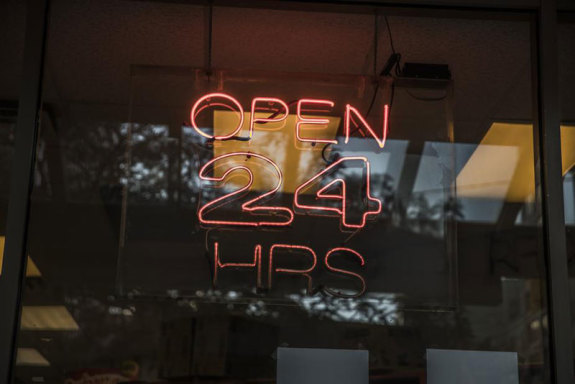5 Things Every Business Owner Should Know About Business Interruption Insurance

The basic principle of insurance is to protect yourself and your assets from unexpected, catastrophic, and financially devastating events. Having adequate insurance is especially imperative for business owners, as one disastrous incident could potentially close the doors for good.
Business interruption insurance is one type of policy that will defend you in case of unexpected strife. The aim of this coverage is to protect owners from financial loss in times of temporary, but prolonged closure—in other words, interruption. In this context, “interruption” usually means disaster, such as a fire, flood, intentional attack, or other kind of natural disaster. When these events suddenly occur, a business interruption policy will cover lost profits, operating costs, and other transitional expenses until your enterprise is physically restored back to its former state. Business interruption insurance is often-times overlooked. However, it can truly be a life-saver in times of unsuspected catastrophe. Here are five tings all business owners should know before they purchase interruption insurance.
5 Things to Know about Business Interruption Insurance
Business Interruption Insurance is Different from Property Insurance: In-fact, business interruption coverage is an extension of property insurance. Property insurance only covers the physical damage to the business, whereas the business interruption policy covers transitional costs and usually ensures protection against any potential lost profits. This insurance extension is designed to put a business in the same financial position it would have been if no catastrophic event had occurred.
Business Interruption Insurance Covers a Number of Potential Losses: These types of policies can vary. Here are a few aspects that are can be covered:
- Profits. Profits that could have been earned can be recovered by this insurance policy. The amount awarded is determined by past month’s (or past year’s) data.
- Fixed Costs. Operating expenses that the business continues to owe are usually covered.
- Temporary Location. Some policies cover the additional expenses associated with the necessary transition while your permanent location is unusable.
- Supplier/Buyer Loss. In some instances, your business can be covered when a primary provider, supplier, or customer suffers a business interruption (fire, flood, natural disaster). However, this is usually not included with a standard policy, and must be added-on to your plan.
 The Duration of Coverage Depends on Your Policy: The majority of insurance policies define the “interruption” period as follows: the start date is 1-2 days after the damaging incident occurs. The end date is when the property is physically repaired and usable once again. Certain extensions can be added to extend the length of coverage until business operations and revenue have returned to the same level as prior to the accident (this could be weeks, months, or even years after the building and equipment is physically restored and considered usable).
The Duration of Coverage Depends on Your Policy: The majority of insurance policies define the “interruption” period as follows: the start date is 1-2 days after the damaging incident occurs. The end date is when the property is physically repaired and usable once again. Certain extensions can be added to extend the length of coverage until business operations and revenue have returned to the same level as prior to the accident (this could be weeks, months, or even years after the building and equipment is physically restored and considered usable).Add-Ons can Increase your Breadth of Coverage: There are a number of add-on options available to business owners to further secure and protect their enterprise. One popular extension is called contingent business interruption coverage. This policy pays-out when a key supplier or customer is temporarily unable to do business with you. For instance, if your primary supplier floods during a storm, your contingent business interruption coverage would reimburse you for the loss and allow you to continue with normal operations. Another add-on worth noting is extended business interruption insurance. This policy provides financial reimbursement for the income lost until revenue returns to its pre-loss level (whereas standard interruption coverage only covers losses until the business is physically restored and running again).
Business Interruption Coverage Plans can Vary: Often-times, the particulars of a business interruption policy are user-specific. Firstly, make sure that your plan covers profits; without profit-reimbursement, restoring operations to their pre-disaster level will be incredibly difficult. Always note the types of interruptions you want to cover and be specific. For example, some coverages don’t automatically include loss of utilities (even though utility loss is among the most common interruptions to any given business).
The Bottom Line
Any serious business owner should give due consideration to purchasing business interruption insurance. This coverage protects policy-holders from unexpected catastrophe; events that could send enterprises into irreversible debt in a matter of days.
Furthermore, if your business interruption claim is denied, consult a legal professional. An experienced attorney may be able to negotiate with your insurance agent and recover partial (or perhaps full) reimbursement for your losses. Above all, know your policy. Sometimes, agents will sell insurance plans that are less-than-comprehensive. At a minimum, ensure that your policy will cover lost profits, and consider add-ons such as contingent interruption coverage and extended policies to further secure your business income.
If your claim is denied, contact a legal professional familiar with bad faith claims. A good attorney will be able to review your policy and determine exactly what should be covered and the amount of compensation that should be received.
 The Duration of Coverage Depends on Your Policy: The majority of insurance policies define the “interruption” period as follows: the start date is 1-2 days after the damaging incident occurs. The end date is when the property is physically repaired and usable once again. Certain extensions can be added to extend the length of coverage until business operations and revenue have returned to the same level as prior to the accident (this could be weeks, months, or even years after the building and equipment is physically restored and considered usable).
The Duration of Coverage Depends on Your Policy: The majority of insurance policies define the “interruption” period as follows: the start date is 1-2 days after the damaging incident occurs. The end date is when the property is physically repaired and usable once again. Certain extensions can be added to extend the length of coverage until business operations and revenue have returned to the same level as prior to the accident (this could be weeks, months, or even years after the building and equipment is physically restored and considered usable).
 What is Business Interruption Insurance?
What is Business Interruption Insurance? What is Business Interruption Insurance?
What is Business Interruption Insurance?


